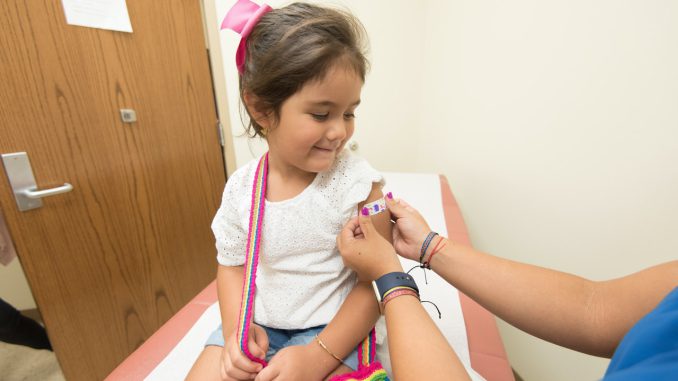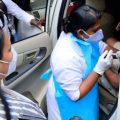
The varicella-zoster virus (VZV) causes chickenpox, a highly contagious disease. It causes a blister-like rash, itching, exhaustion, and a high fever. Chickenpox was responsible for around 4 million cases, 10,600 hospitalizations, and 100 to 150 deaths each year in the United States.
Symptoms:
Chickenpox infection causes an itchy blister rash that emerges 10 to 21 days after exposure to the virus and lasts about five to ten days. The following signs and symptoms may emerge one to two days before the rash.
- •Fever.
•Appetite loss.
•Headache.
•Tiredness and a vague sense of ill health (malaise).
The chickenpox rash goes through three stages after it appears:
- •Raised pink or red pimples (papules) that appear over a period of days
- •Small fluid-filled blisters (vesicles) that grow in a day or two and then rupture and leak
- •Crusts and scabs grow over damaged blisters and take a few days to cure.
•New bumps emerge for several days, so you may have all three stages of the rash simultaneously: bumps, blisters, and scabbed sores. Before the rash forms, you can spread the virus to other people for up to 48 hours, and the virus stays contagious until all broken blisters have crusted over.
Vaccination
Japanese Virologist Dr. Michiaki Takahashi developed the first vaccine against Chickenpox.
On Thursday, Google honored virologist Dr. Michiaki Takahashi, who created the first vaccination against Chickenpox with a unique doodle in honor of his 94th birthday.
The colorful doodle, created by Tokyo-based guest artist Tatsuro Kiuchi, depicts how a Japanese researcher’s vaccination saved children’s lives and reduced the handful of cases of Chickenpox around the world.
The virologist developed the first vaccine against the varicella virus, which causes Chickenpox, in 1974. “It was then put through rigorous testing with immunosuppressed individuals and shown to be incredibly successful,” according to the Google Doodle page.
The chickenpox vaccine was developed and given to millions of youths all over the world. It proved to be a successful strategy for preventing severe cases of infectious viral disease and its spread.
The vaccine is around 90% effective in preventing Chickenpox after two doses. Therefore, you protect yourself and others in your community when you get vaccinated. This is especially crucial for persons who are unable to receive vaccinations, such as those with compromised immune systems or pregnant women.
Even if you’ve been vaccinated against Chickenpox, you might still get it. It is, however, usually milder, with fewer blisters and no fever.


